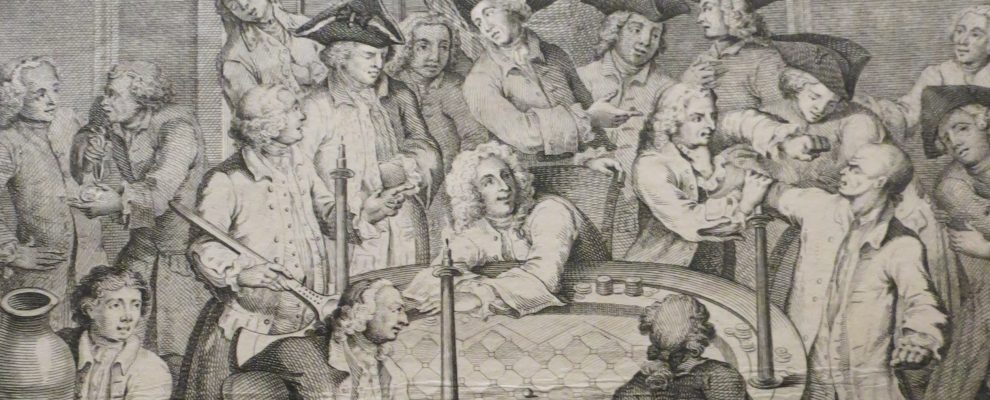Gambling was extensively enjoyed by all social groups and by both sexes in the Georgian period. Gambling in the streets, at fairs and markets was the preserve of the lower classes whilst gambling clubs offered a more rarefied space to indulge. Almost every sporting event also offered the opportunity to gamble and undoubtedly part of the appeal for spectators was the possibility of striking it rich.
Games of pure chance such as dice, as well as card games requiring skill such as whist, were often played for extremely high stakes. Horace Wapole in his letters to Sir Horace Mann often expressed astonishment at the sums of money being lost at Almack’s in Pall Mall, claiming that ‘the young men […] lose five, ten, fifteen thousand pounds in an evening there. Lord Stavordale, not one and twenty, lost eleven thousand there, last Tuesday, but recovered it by one great hand at hazard’. For those seeking lower stakes, lotteries offered another way in which to gamble. Lotteries in the eighteenth century were often used to raise money for a specific good cause, from infrastructure projects, to charities, military campaigns, even in June 1775 to help bankrupt jeweller, James Cox, who was permitted with Parliament’s consent to hold a lottery sale of all his goods.
The highs and lows of gambling, where fortunes could be made and lost, offered moralising voices substantial material to work with. A pamphlet published in 1784, Hints for a Reform, Particularly in the Gambling Clubs, declared that a national propensity to gamble placed Britain in grave peril. The pamphlet exhorted its readers ‘to lay the axe to the root of GAMBLING! To this dreadful vice must the loss of America be ascribed! To this dreadful vice must every misfortune which has lately fallen on this country be attributed!’. Perhaps accordingly children’s board and card games followed this trend, with games of chance being limited, skill encouraged and an overtly moral tone infused.

Name: Fairfax House
Source: In Pursuit of Pleasure: Entertaining Georgian Polite Society (Fairfax House, 2016)
